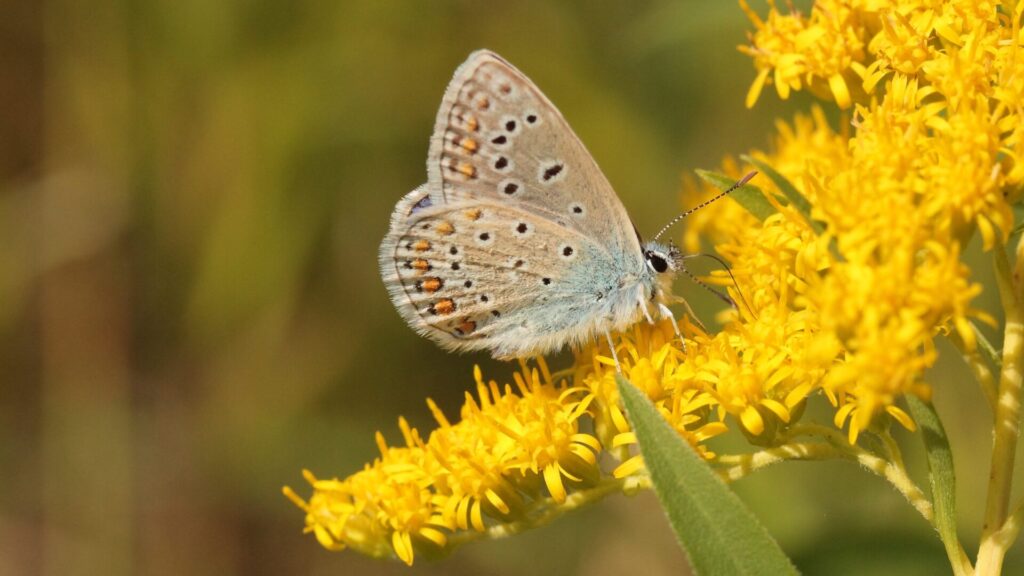
Greetings, this is Peter from the Wild Bunch. Frome is often named as a place with ‘a great community’ invariably referring to the humans who (largely) relate well to each other. But, as humans, we need to broaden our community outlook to cover other species – both for our own wellbeing and for theirs.
A great example of this is the community of pollinators we need to help thrive: the crops they pollinate are vital for our survival, and for theirs. We tend to focus on honeybees as charismatic and obvious partners in pollination. But a recent study of the UK’s insect-pollinated crops found that honeybees were responsible for only 5 to 15% of pollination. The remaining 85 to 95% was carried out by other pollinators, such as bumblebees, moths, and flies.
Over the next few weeks, check out any large clumps of ivy and (especially in any patches of sun) you will find them buzzing with hoverflies, wasps, flies and other insects, including the ivy bee which is gradually moving north as the climate warms (arriving in the UK in 2001). But this ‘ivy party’ is a real rarity and in general insect numbers are plummeting, especially in urban areas. While we have become better at planting for pollinators like bees, a diversity of habitat is key for the aphid-eating hoverflies, night-pollinating moths, and insects with particular feeding and habitat needs. Diversity of habitat is the most important – so you need your flower patch, you need a tree, you need some shrubs, you need an untouched bit of grass and somewhere there needs to be a pond.
Which brings me back to community. It’s crucial to collaborate and talk to your neighbours encouraging them to diversify too. An individual allotment or flower garden is pretty small and can’t possibly provide all that’s needed for these fellow travellers on planet Earth to survive, but when you create a whole network of people who are interested and engaged these small patches can cover all that’s needed and these crucial communities can thrive alongside us.
The Frome Wild Bunch meets every month – September’s meeting is on Thursday 18th September from 1.30pm to 3pm at the town hall. Caroline from Frome Field 2 Fork will be sharing information about ‘Hugelkultur’, a gardening technique that involves creating raised beds using decomposing wood and other organic materials, which helps improve soil quality, provide long-term nutrients and resist drought. Book free tickets at bit.ly/hugelkultur-talk.

